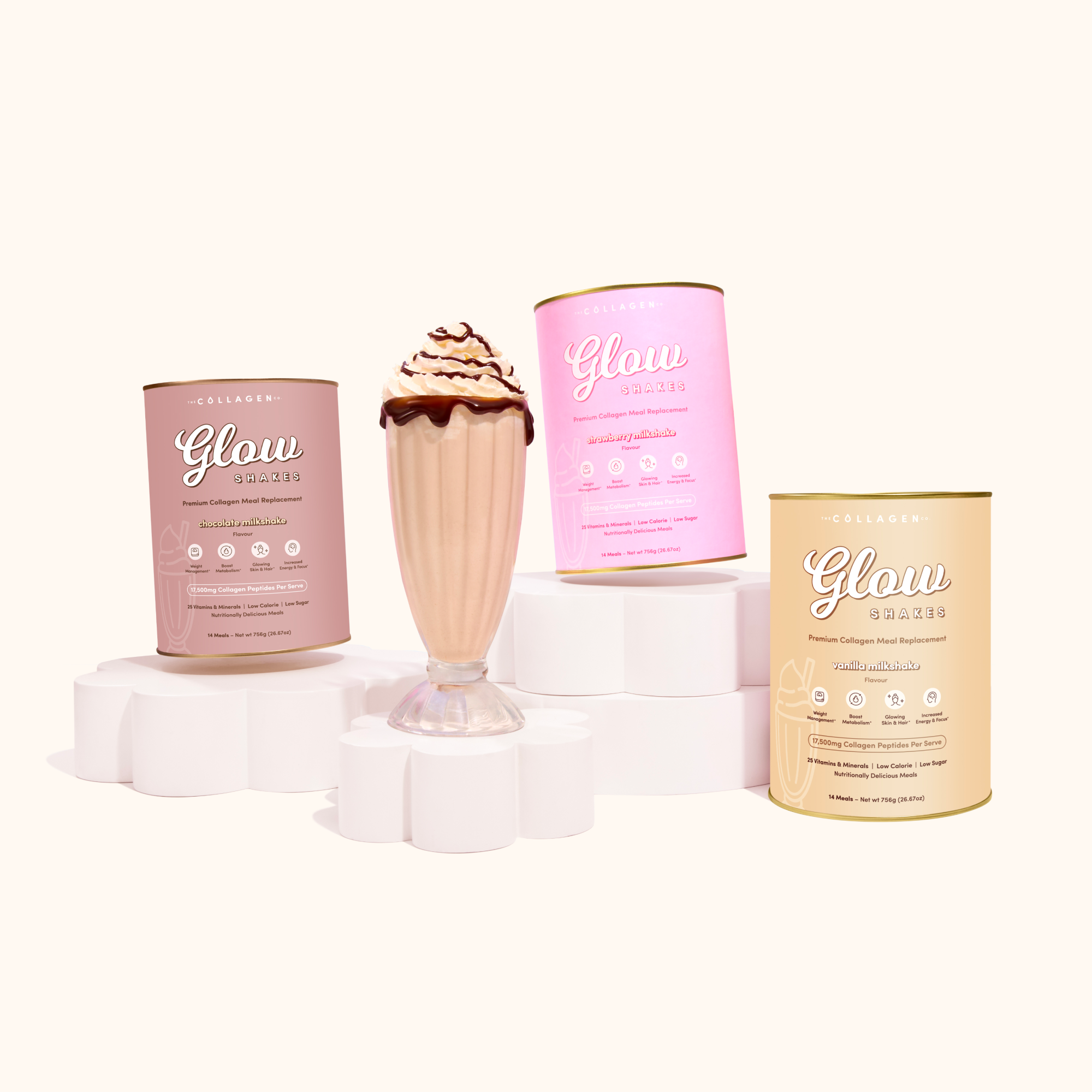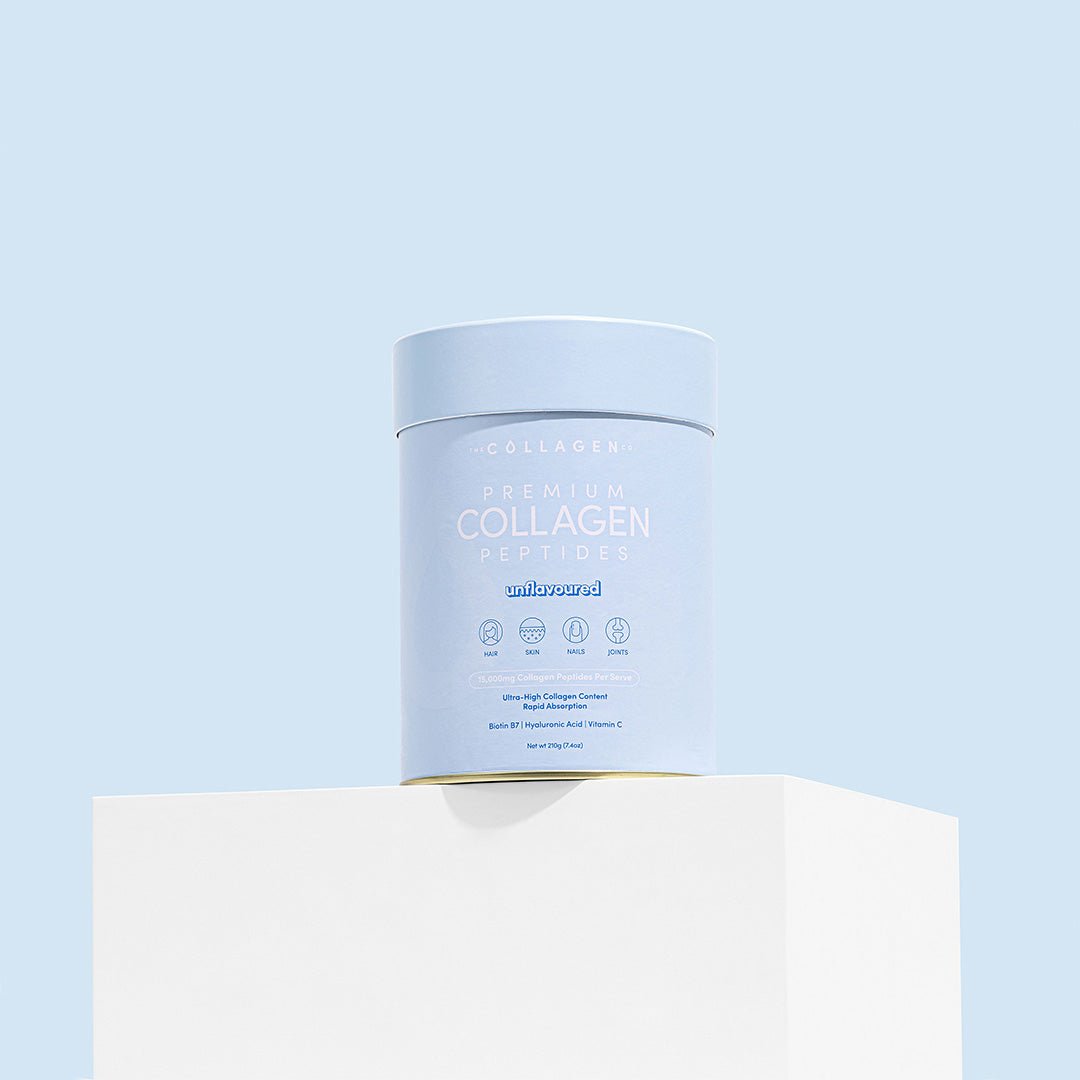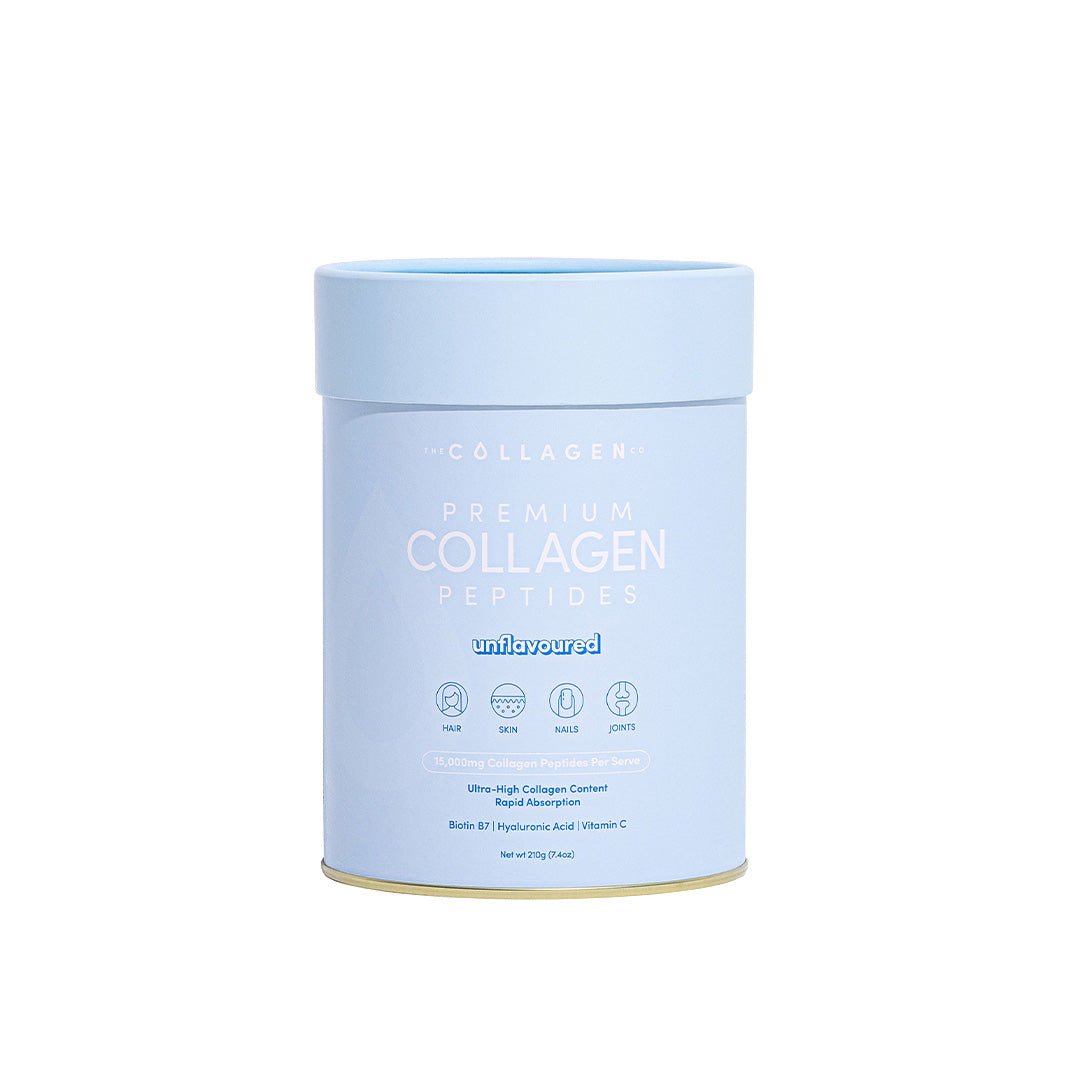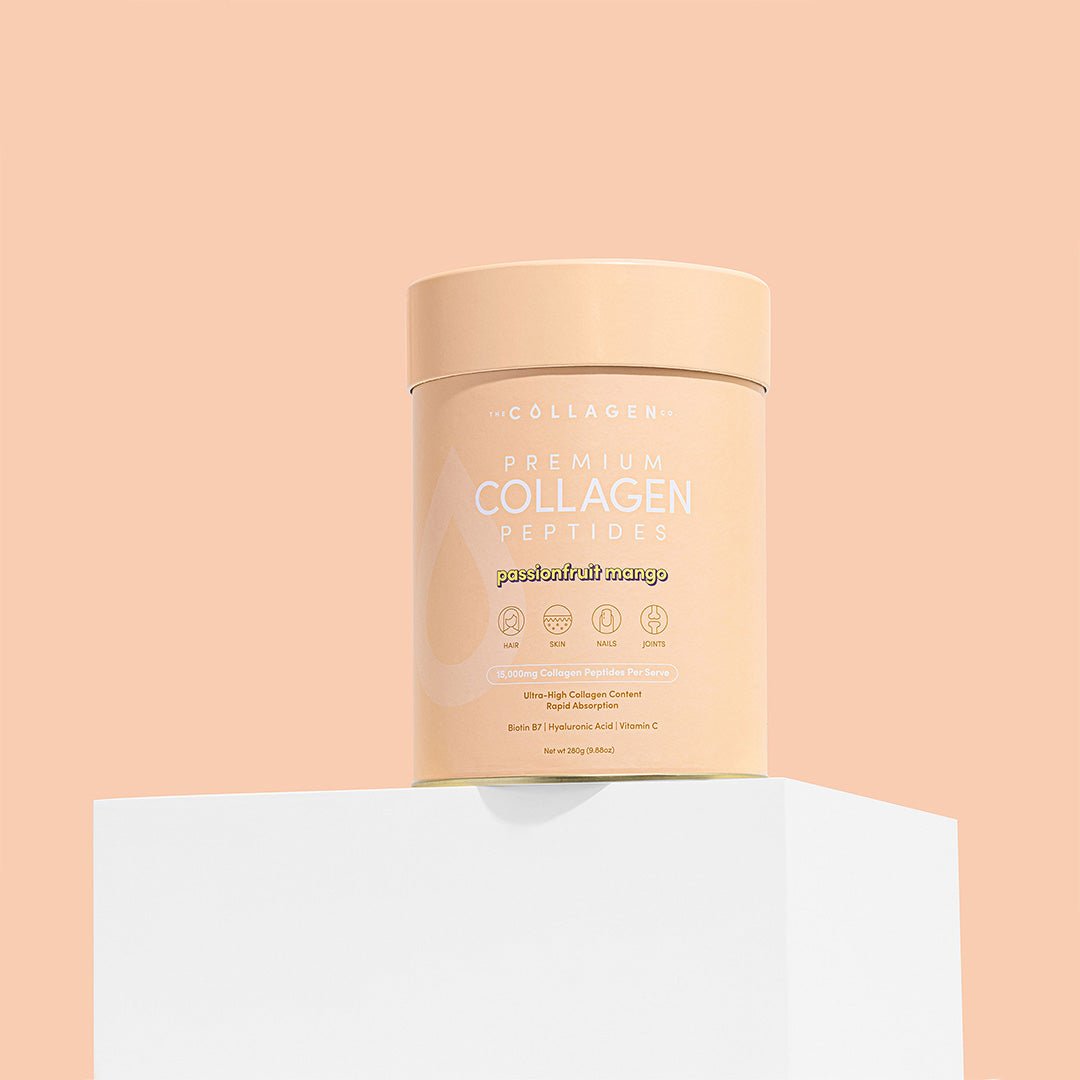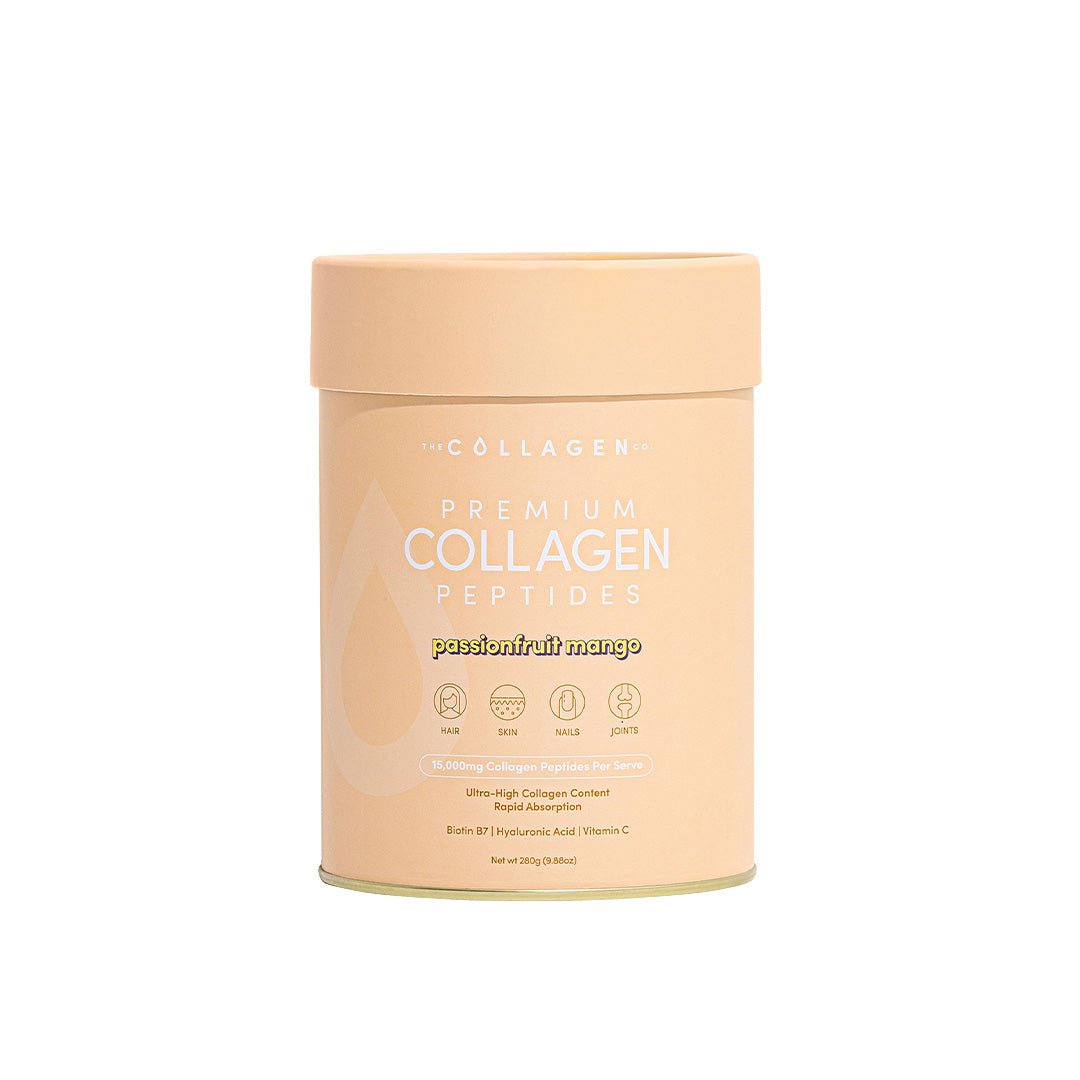Does Collagen Interfere with Medications? Everything You Need to Know
Posted 20th September 2022
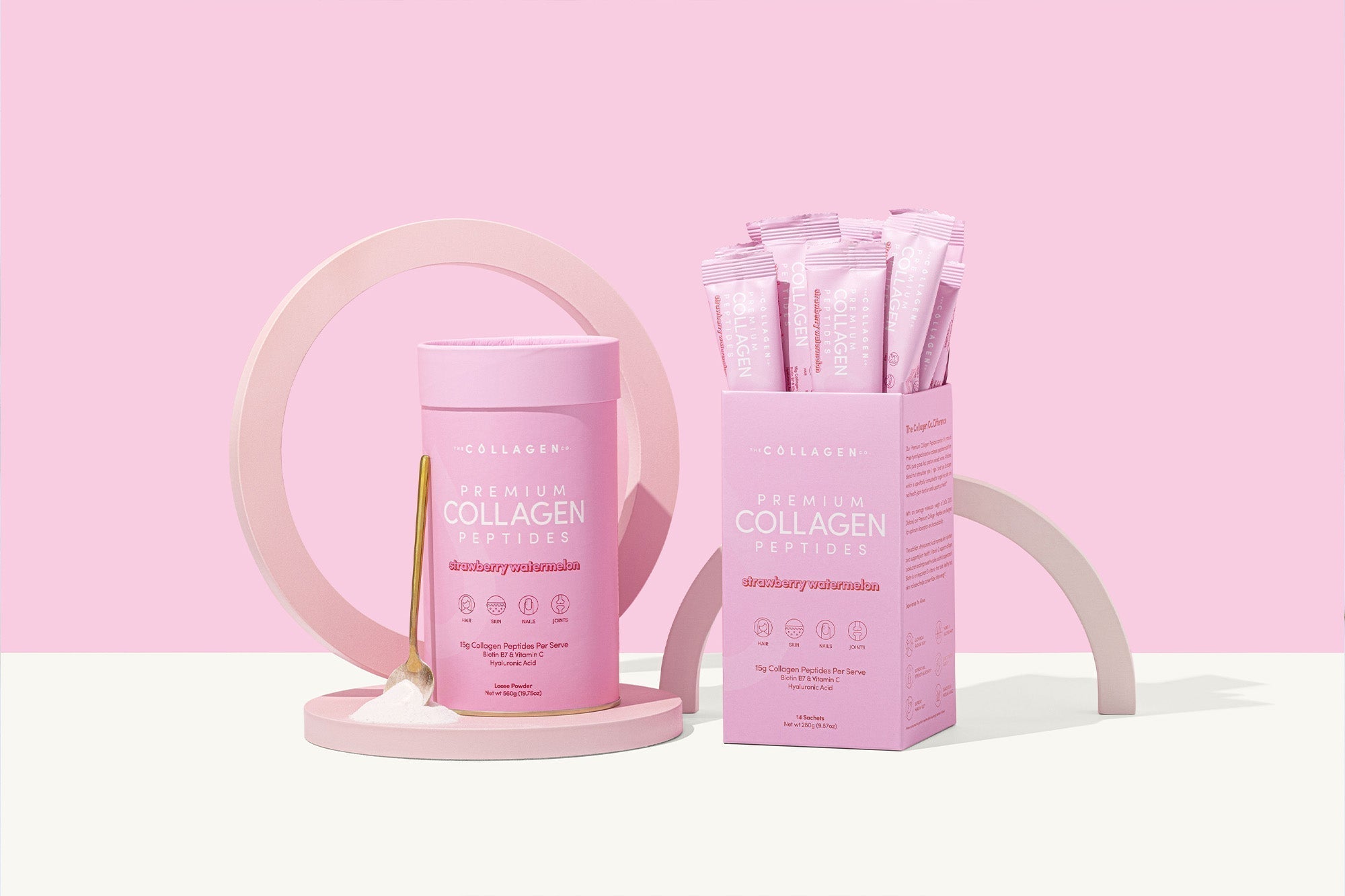
Even the most "good-for-you” herbal remedies, vitamins, and minerals could become dangerous when taken with certain medications.
A prime, chilling example of a drug-supplement interaction is that of garlic supplements (shown to be beneficial for those with heart disease) interacting with anticoagulants—which are given to people deemed to be at high risk of developing strokes and heart attacks.
This combination increases an individual’s risk of excessive bleeding. If you went, “Oh no, should I worry about collagen supplements?” this article is perfect for you.
What is in collagen? Is it safe to take?
To understand if collagen peptides are safe to take, knowing what they contain will be helpful.
That's because drug-supplement interactions occur on a (to put simply) compound-to-compound basis. For example, we can trace garlic’s blood-thinning properties to an organosulfur compound called ajoene.
It prevents platelet aggregation, enhancing the effects of anticoagulants like aspirin, warfarin, and clopidogrel.
In most cases, collagen supplements will only contain animal-derived—think cow, fish, chicken, pig, and sheep—collagen. That means it’s made up of amino acids: the same as you’d find in your baked salmon, pan-seared steak, fried chicken, etc.
If that’s the case … is hydrolyzed collagen safe to take?
While you might have been tempted to answer, "Yes!" the truth is that was a trick question. Just because your favorite protein sources are safe to eat doesn't mean that collagen peptides are, too.
Does collagen interact negatively with medicine?
See: it’s difficult to “overeat” protein through whole foods. They’re highly satiating.
Think about the last time you worked through a slab of steak yourself. Chances are, you felt stuffed by the last few bites, especially if you paired it with sides. The average 100-gram steak provides ~23 grams of protein.
Now, compare that to how you feel about downing a collagen shake.
Each serving of The Collagen Co’s unflavoured collagen powder, for instance, gives you 13.5 grams of protein. Most of us could do two servings without blinking (well, maybe a maximum of five blinks)—that’s already 27 grams.
This means to answer the question, “does collagen powder interact negatively with medicine?” we must look into drug interactions with high-protein diets.
In general, high-protein diets are safe. But, as we all know, there are always exceptions.
Are there any medications that I should be wary about?
Below, explore the potential effects of a high-protein diet (which really means collagen supplements here) on two commonly prescribed medications.
Collagen and thyroid medication
Thyroid disease is prevalent.
In fact, research suggests that approximately 10 to 20% of the Australian population have evidence of thyroid autoantibodies.
There are two main types of thyroid disease: hypothyroidism (your body produces too little thyroid hormones) and hyperthyroidism (your body produces too much thyroid hormones). The former is treated by daily hormone replacement tablets called levothyroxine, while the latter with medicines called thionamides (e.g., carbimazole and propylthiouracil).
Have a thyroid disease and are interested in collagen supplementation?
There's good news: there’s no evidence of supplement-drug interactions between a high-protein diet (i.e., collagen supplements, including collagen sachets) and various thyroid medications.
Collagen and blood pressure medicine
There is some evidence suggesting that high protein diets may interfere with the effects of the following blood pressure medications:
- Propanolol: According to this 1986 study published in Clinical Pharmacology & Therapeutics, the systemic clearance of propranolol (i.e., the rate at which it was removed from the body) increased as a result of a high-protein meal. This decreased the effectiveness of the drug. In that vein of reasoning, hydrolyzed collagen may thus increase the risk of bradycardia and hypotension when taken with propranolol.
- Warfarin: Several studies, including this 2005 study published in The Annals of Pharmacotherapy, have found decreased warfarin effect after starting on high-protein, low-carbohydrate diets.
Please consult your primary healthcare provider
You don't take blood pressure medication—does that mean you're clear to start on a collagen supplementation routine?
Not so fast. That’s because not all collagen supplements contain only hydrolyzed collagen peptides. Some may be formulated with other bioactive compounds, like vitamin E or D, that may interact with your medications.
It's thus always a good idea to consult your healthcare provider before purchasing any collagen supplements (as with any supplements in general).
Your doctor will be able to consider your entire medical history to make an informed recommendation as to whether you should (or should not) take collagen supplements.

